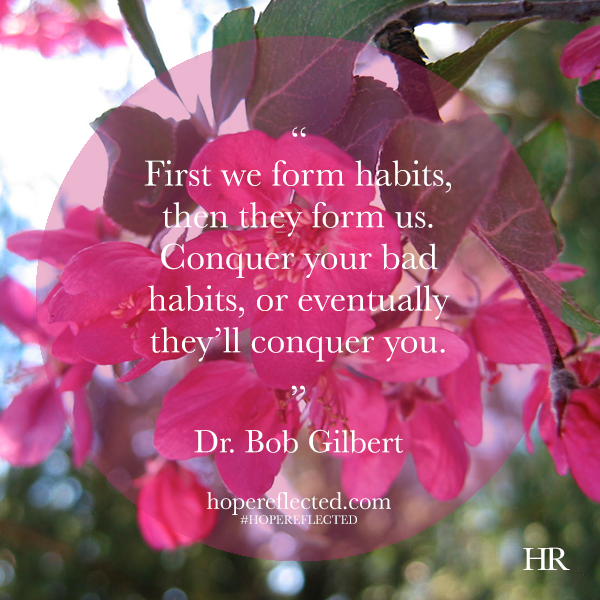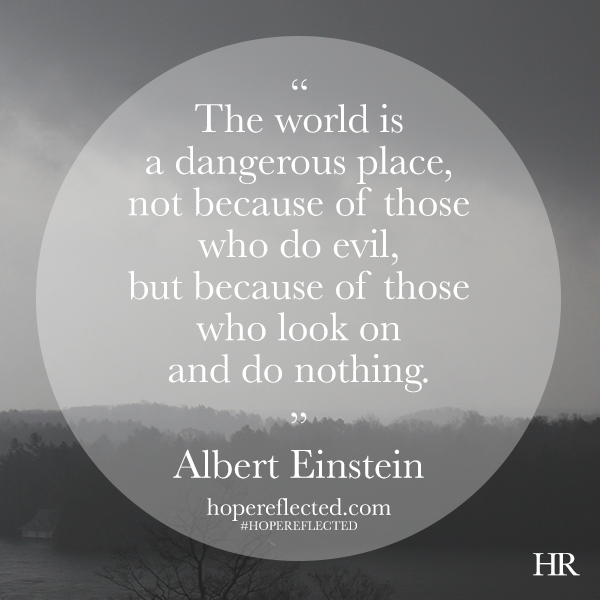3 Ways to Conquer Bad Habits
Written by H, Posted in Christian Living, Published Work
Galatians 5:9 says, “A little leaven leaveneth the whole lump,” and I was reminded over the weekend just how true this is. Last Fall, Wes and I did a lot of winter prep work in our garden and around the yard; we weeded, seeded, raked, and trimmed. Preparation is supposed to benefit the lawn, trees, and any perennials in the garden during the next season.
This past weekend, it seems as though every neighbour was out in his or her yard, just soaking up the warm weather. Wes and I were no exception. We took the opportunity Saturday to churn up the gardens, do some edging, and lay mulch for this year. While we were churning the earth around our trees, both of us noticed how this one weed spread and laid roots during the winter! We’re pretty sure it’s some sort of common knotweed, and it sure grows aggressively. Even after all our work to pull up the roots last Fall, it somehow managed to breed and grow throughout the Winter.
I say all this because, as we were pulling up any leftover (or new) weeds over the weekend, I thought to my self how important it is when you’re pulling weeds to make sure you pull the whole root – you can’t leave any of the root behind, or it will just start growing again. How similar that is to our own behaviours and habits – when we’re trying to make positive life changes, we have to get rid of all the negative, and make sure any bad habits are completely uprooted.
Bad habits pull you down. Sure, those vices may not seem all that destructive at first, but like sin, vices are progressive. They start out small, and you think they’re no big deal, and sometimes we can’t even see bad habits until we’re so far involved in practicing them, and by that time, they can seem almost impossible to break. So how can we pull away from destructive behaviours and bad habits?
Three areas I can think of that can help us conquer bad habits:
- Be accountable. Perhaps you have a spouse, a best friend, a parent, or even someone within your church family who can encourage you by helping you stay accountable. In the first part of the verse, James 5:16 instructs us to “Confess your faults one to another”.
- Pray specifically. The second part of James 5:16 instructs us to “pray one for another, that ye may be healed.” When you have a specific habit you need help overcoming, or a behavior that needs correction, ask for prayer specifically for that concern.
- Believe you can overcome bad habits and behaviours. The last part of James 5:16 tells us that “The effectual fervent prayer of a righteous man availeth much.” Effectual is another word for successful, and fervent is another word for believing something so truly that you are actual passionate about the topic.
Bad habits and behaviours can be overcome. One of the keys is to nip it in the bud. Like the annoying (and fast-growing) knotweed, bad habits and behaviours have a way of spreading. As Dr. Bob Gilbert said, “First we form habits, then they form us. Conquer your bad habits, or they’ll eventually conquer you.”












![False friends or counterfeit kindness; whatever you want to call it, the world is filled with people who will say one thing to your face and then another behind your back; people who will woo you in order to get something from you.
It’s sad, but it’s true.
The Bible provides us with examples from Joab to Judas, and yet, we’re surprised when we find ourselves deceived and hurt by someone else.
So what are some of the hallmarks of a true friend?
You can read more about this on hopereflected.com [Link in profile]
.
.
.
#friends #friendship #kindness #counterfeitkindness #hurt #proverbs #truefriends #hopereflected #blog #blogpost](https://www.hopereflected.com/wp-content/plugins/instagram-feed/img/placeholder.png)